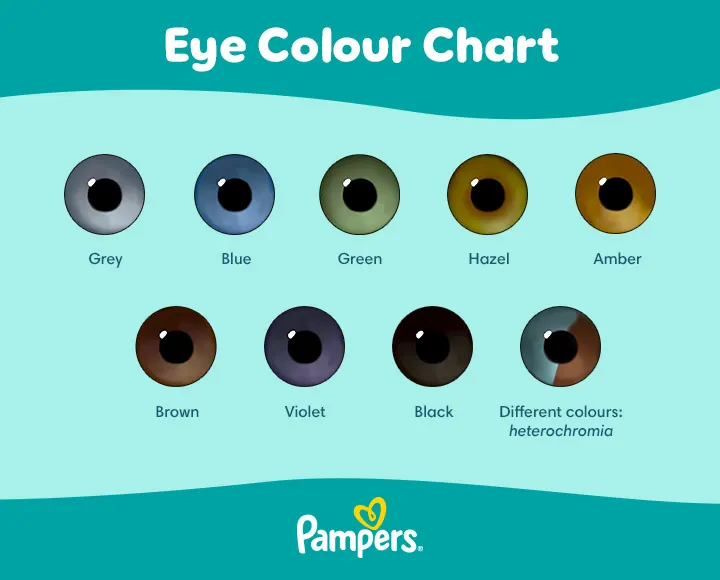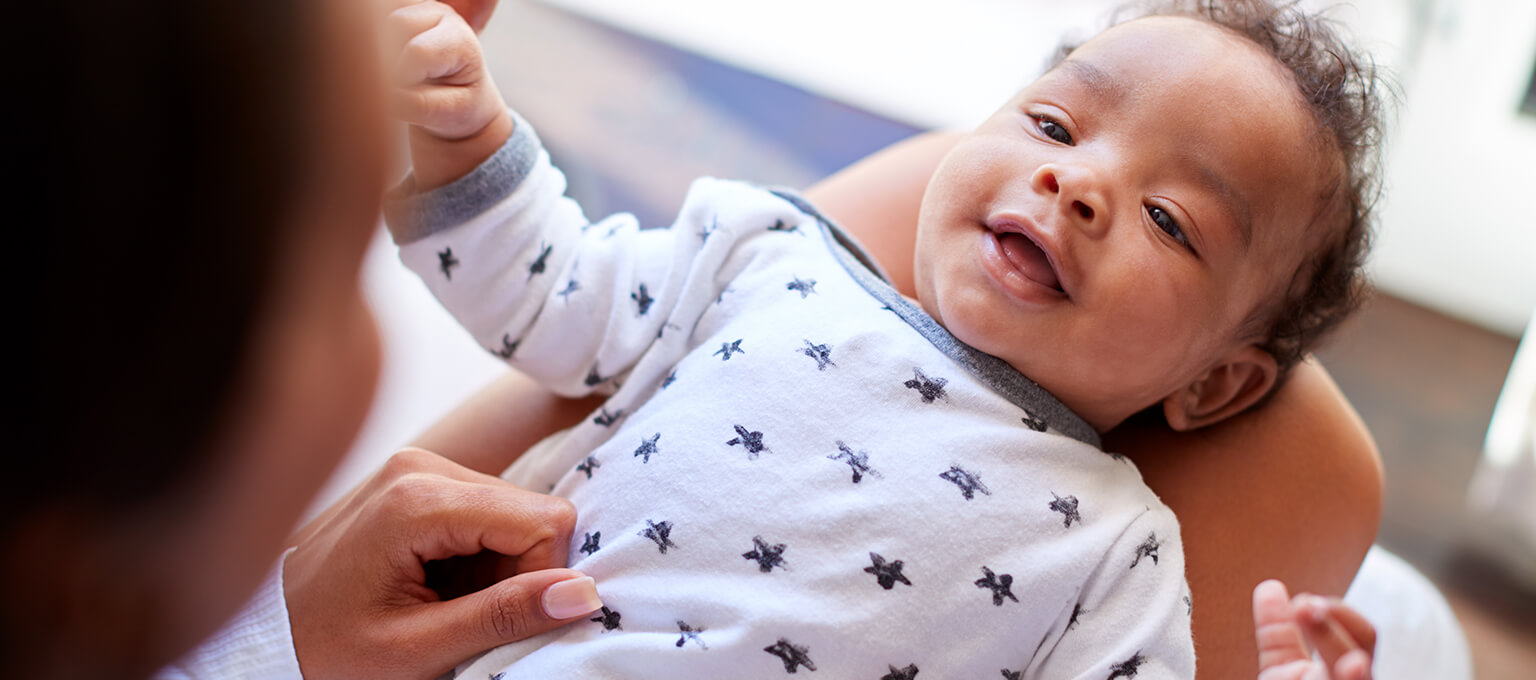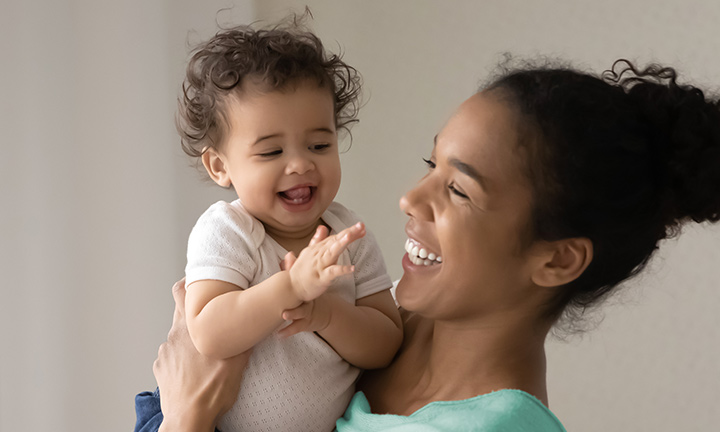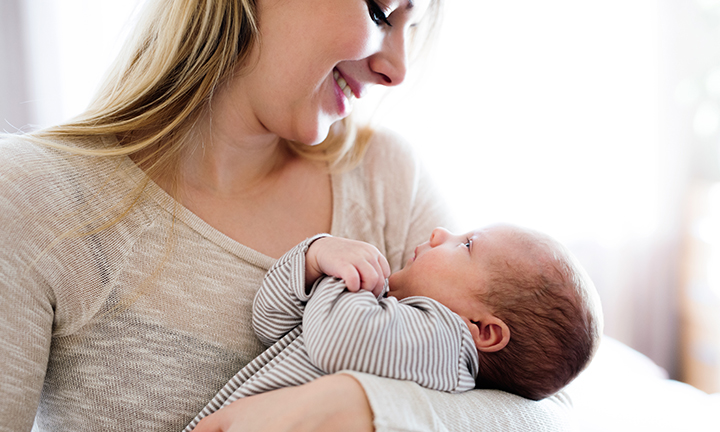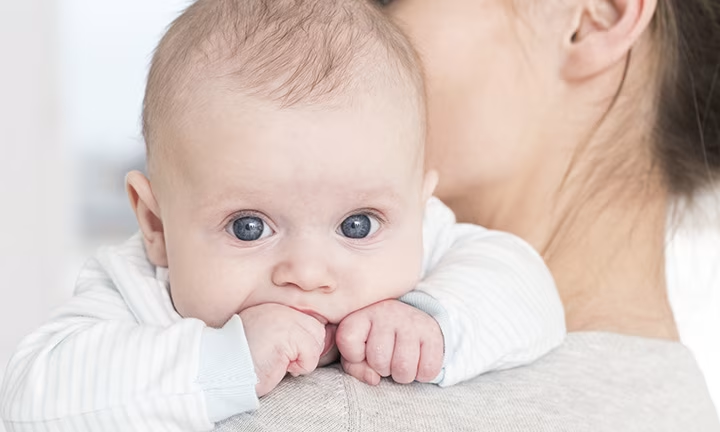
When Do Babies’ Eyes Change Colour?
You've waited so long for this moment – looking into your newborn's eyes for the very first time. But did you know it can be months or years before your baby gets their final eye colour? Read on to find out when your baby’s eye colour might change and what determines the colour of your little one’s eyes.
What Is Eye Colour?
Eye colour actually refers to the appearance of the iris, which is the coloured ring that surrounds the pupil (the black part) of each eye. The iris helps control the amount of light that enters the eye.
Your baby’s pupils will always be black, and the sclera (the whites) of your baby’s eyes will almost always be white — except temporarily, for example, if your little one has jaundice, giving them a yellow tint.
If the whites of your baby’s eyes ever look pink or red, your little one could have conjunctivitis, an inflammation of the eye. This isn’t usually serious but may need treatment that your baby’s doctor can prescribe. Let your doctor, midwife or health visitor know straight away if you think your baby might have jaundice or conjunctivitis.
What Colour Eyes Are Babies Born With?
It’s a common belief that all babies are born with blue eyes, but this is actually a myth. A baby’s eye colour at birth depends on genetics and melanin (a protein secreted by special cells called melanocytes that also give your baby’s skin its colour). Babies whose heritage is dark-skinned are frequently born with brown eyes, whereas light-skinned newborns tend to be born with blue or grey eyes. Since melanocytes respond to light, at birth, a baby may have eyes that appear grey or blue, partly due to the lack of pigment and also because they’ve been in a dark womb up until now. As a baby is exposed to more light, their eye colour can change over time (even several years). If the melanocytes secrete just a little more melanin, a baby may end up with blue eyes. Just a little more melanin and their eye colour may be green or hazel. Brown eyes are the result of very active melanocytes secreting lots of melanin. Brown eyes are likely to remain brown throughout life.
Are All Babies Born With Blue Eyes?
No. As we mentioned above, a newborn baby’s eyes can range in colour from slate grey to black. It’s more common for lighter-skinned babies to be born with blue or grey eyes. It is true, however, that you may not be able to tell your newborn baby’s final eye colour straight away, because not all babies are born with the eye colour they’ll have later on in life. For example, a child may be born with grey eyes that turn brown several months later.
When Do Babies Eyes Stop Changing Colour?
So, when exactly does a baby’s eye colour change permanently? The amount of time it takes for your baby’s eyes to assume their final colour varies a lot. But generally, the final colour may be apparent by the time your baby is 6 to 12 months old. However, their eye colour may stop changing earlier than this, or continue to change until they’re about 3 years old. Sometimes, eye colour can keep on changing right into adulthood, so although your baby’s eyes will probably get their colour in the first months and years after being born, you may notice them getting a little lighter or darker after this as well.
What Colour Will Your Baby’s Eyes Be?
The amount of melanin your baby produces – and other factors contributing to your eye colour – are determined by genetics. Often, babies whose heritage is dark-skinned may be born with – or eventually have – darker-coloured eyes, and the opposite is true for children of lighter-skinned parents. However, keep in mind that as the parents we inherit two copies of each gene – one from each parent – so besides the eye-colour genes that determine our eye colour, we also carry other ‘hidden’ copies of the same genes that can still be passed on to our children. This means that even if you have brown eyes, for example, the other eye-colour gene inherited from your parents may be for a different eye colour. The same is true of your partner. You and/or your partner may pass on these hidden genes to your baby instead of the ones that determine your own and your partner’s eye colour. To make things a bit more complicated, some of these genes are dominant and others are what’s known as ‘recessive’. That is, they only work if there is no dominant gene present. This is why you can’t always predict what your baby’s eye colour will eventually be just by looking at your own and your partner’s eye colour. Genetics is a complicated science, but here’s a simplified example of how your baby might come to have different coloured eyes to you and your partner:
Of course, brown-eyed parents with a blue-eyed child is a rarer scenario. Statistically, it’s more likely that the baby of two parents with the same eye colour will also have that same colour of eyes. This example just shows how this isn’t necessarily always the case.
What Is the Most Common Eye Colour?
Brown is the most common eye colour globally. Brown eyes are also more common in hotter climates due to higher levels of melanin in people’s skin, eyes, and hair, which helps protect them from the sun’s rays.
According to a recent study, lighter eyes are more common across Northern Europe, including Great Britain. In Great Britain, it’s estimated that more people have blue eyes than brown or other colours.
Why Do Some Babies Have Different Coloured Eyes?
Some babies have different coloured eyes, known as heterochromia. Each eye could be a different colour, such as one blue eye and one hazel eye, or a single eye could have patches of different colours, such as a brown eye with a section of grey. Variations in melanin typically cause the condition, the pigment responsible for our skin, hair and eye colour. This discrepancy can be attributed to genetic mutations, genetic inheritance or a result of an injury or illness.
If your baby has different coloured eyes, talk to your doctor or health visitor, who will offer more information. It’s also advisable to consult a professional for further evaluation if heterochromia occurs suddenly or changes over time.
Newborn Eye Colour Chart
Although you can’t necessarily predict your newborn baby’s eye colour, don’t let that stop you from having a little fun by guessing what the outcome will be. From light shades of grey and blue to dark green, hazel and brown eyes, check out our eye colour chart for some colours your newborn baby may have:
FAQS AT A GLANCE
A baby’s permanent eye colour may not be fully visible until they are about 6 to 12 months old. However, significant changes can continue to occur for up to 3 years. Many babies start with blue or grey eyes at birth because a substance called melanin needs time to be deposited into the iris to darken the eyes.
The Bottom Line
Your baby’s eye colour is as unique as everything else about your little one. No matter what colour your baby’s eyes end up being, one thing is for sure, you’ll simply love gazing into them. We hope you had fun learning a little bit about when your baby’s eye colour might change and the genetics behind it all. In just a little time, your baby’s final eye colour will reveal itself. This is just one more of your newborn baby’s many physical and personality traits that will start to unfold before your eyes in the months and years to come. And while you’re here, why not download the Pampers Club App to earn free nappies.
- All About Vision. Most Common Eye Color
- NHS. Your Eye Health
- NHS: Getting to know your newborn
- NHS: Week 26 – your second trimester
- NHS: Week 9 – your first trimester
- NHS: Keeping Your Baby Safe In the Sun
- NHS: Albinism
- NHS: Recessive Inheritance
- Oxford Academic. Heterochromia Iridis: More than beautiful eyes
- Science Direct. True Colors: A Literature Review On the Spatial Distribution of Eye and Hair Pigmentation
Read more about Newborn Baby
Join Pampers Club and get:

